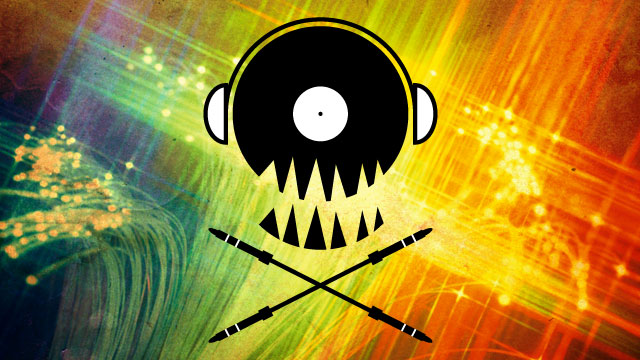
Amazon.com made waves in March when it announced Cloud Player, a new "cloud music" service that allows users to upload their music collections for personal use. It did so without a license agreement, and the major music labels were not amused. Sony Music said it was keeping its "legal options open" as it pressured Amazon to pay up.
In the following weeks, two more companies announced music services of their own. Google, which has long had a frosty relationship with the labels, followed Amazon's lead; Google Music Beta was announced without the Big Four on board (read our first impressions). But Apple has been negotiating licenses so it can operate iCloud with the labels' blessing.
The different strategies pursued by these firms presents a puzzle. Either Apple wasted millions of dollars on licenses it doesn't need, or Amazon and Google are vulnerable to massive copyright lawsuits. All three are sophisticated firms that employ a small army of lawyers, so it's a bit surprising that they reached such divergent assessments of what the law requires.
So how did it happen? And who's right?
A lost decade
It was a service ahead of its time. Slip a CD into your computer, and the music on it would instantly be added to your online locker. From there, it could be streamed to any Internet-connected computer. Several services do this today, but MP3.com was launched more than a decade ago.

The site was a 1990s dot-com star, flush with cash from its $340 million IPO. The recording industry sued, arguing that MP3.com needed licenses to store and then stream their music. MP3.com countered that the technology was legal under copyright's fair use doctrine, much as format-shifting a CD might be.
A federal judge sided with the labels, and the threat of astronomical statutory damages forced MP3.com to settle the case for $53.4 million. Weakened by litigation and the bursting of the dot-com bubble, the company was forced to sell itself to Vivendi Universal in 2001; the music locker feature was abandoned soon afterwards.
After the acquisition, the new parent company ordered MP3.com to sue its old law firm for malpractice, arguing that no competent lawyer would have advised a client that operating the streaming service was legal under copyright law.
This scorched-earth strategy worked. MP3.com founder Michael Robertson describes the record labels' legal strategy as "a very effective campaign of terror." By making examples of Napster, MP3.com, and other early innovators, the music industry was able to scare most of Silicon Valley away from developing technologies that would disrupt their industry. For example, angel investor Paul Graham has compared the labels to a "rogue state with nuclear weapons," and he discourages entrepreneurs from creating startups that touch their music.
The result was a lost decade for music innovation. Throughout the '00s, no major software companies followed in Robertson's footsteps to create music locker services.
Signs of life
The first green shoot to break through this parched ground was a 2008 decision by the United States Court of Appeals for the Second Circuit. The defendant was the New York cable company Cablevision. Rather than giving subscribers traditional DVRs that recorded programs within their homes, Cablevision developed an innovative "remote storage" DVR. Like an ordinary DVR, it records programs selected by the user and plays them back later, but the recorded content is stored in a Cablevision server room rather than a user's living room.
The record labels' legal strategy was "a very effective campaign of terror."
As usual, content providers sued for copyright infringement, saying that Cablevision was retransmitting their content without permission. Cablevision countered that its service was identical to users owning a long-range remote control, that all recording was done at the direction of users, and that separate copies of content were kept for each subscriber. How could the mere length of the wire make copyright infringers of the company?
In 2008, the Second Circuit ruled for Cablevision. The decision has obvious relevance for music lockers, as Cablevision argued that it was merely serving as a passive conduit for users to store and retrieve their content; music lockers say the same.
James Grimmelmann, a law professor at New York Law School, spoke with us about the legal implications of Cartoon Network v. Cablevision. It was a groundbreaking decision but also a "bizarre" case that fails to resolve a number of key issues, he said. Many observers expected the argument to focus on applying the Supreme Court's 1984 Sony decision, which held that "time shifting" with a VCR is legal under copyright's fair use doctrine. But the parties chose not to litigate the fair use question, focusing exclusively on whether Cablevision was directly liable for copyright infringement.
Thus, the Cablevision decision offers no real guidance on how to apply Sony to remote storage services. Nor does it provide any clarity on whether the providers of such services face indirect liability for the infringing activities of their users.
Still, when the Supreme Court declined to hear the Cablevision appeal in June 2009, the Second Circuit's decision became the strongest available legal foundation for a music locker service. So far this year, three companies—Amazon, Google, and Apple—have jumped on the opportunity it provided. And if these pioneers don't get burned, others are likely to follow.
reader comments
178